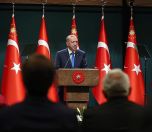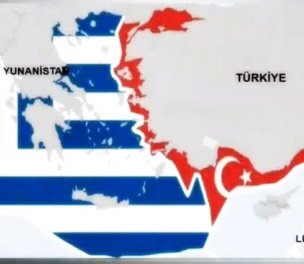Photo: AA/File
Click to read the article in Turkish
US Secretary of State Mike Pompeo has urged all parties to the heightened tensions in the Eastern Mediterranean to get to the negotiating table to resolve the disputes in the region.
"We are urging everyone to stand down, to reduce tensions and begin to have diplomatic discussions about the conflicts that exist there in the eastern Mediterranean, the security conflicts, the energy resource conflicts, the maritime conflicts," told reporters at the State Department.
"They need to sit down and have conversations about this and resolve this diplomatically. It is not useful to increase military tension in the region. Only negative things can flow from that," he added.
Pompeo's comments come amid markedly strained tensions in the region between Turkey and several nations.
Apparently seeking to block Turkey's maritime territorial claims, Greece signed exclusive economic zone deals with Italy on June 9 and with Egypt on August 7. Turkey's Foreign Ministry had stated that Greece and Egypt share no sea borders and the deal is "null and void."
It had said that the demarcated area in the pact is located in Turkey's continental shelf, as Ankara reported to the UN.
Maritime border claims of Turkey and GreeceTurkey signed a maritime border agreeement with Libya's Governmenf of National Accord (GNA) on November 27, 2019. Greece and Egypt signed a simillar agreement on August 7. |
Latest developments in the Eastern MediterraneanOn July 21, Turkey issued its first Navtex alert for Oruç Reis seismic vessel's exploration activities in the Eastern Mediterranean. On July 28, Turkey announced after Germany's diplomatic efforts that it suspended hydrocarbon exploration activities and stated that it was ready to talk with Greece. On August 6, Greece and Egypt signed a maritime border agreement. On August 10, Turkey announced that its drillship Oruç Reis would resume energy exploration in the Eastern Mediterranean. It said the ship will continue its work along with the ships Cengiz Han and Ataman until August 23. On August 14, the EU foreign miniters discussed the crisis at an extraordinary meeting, calling on Turkey to end hydrocarbon exploration activities in contested waters. On August 16, Turkey issued a Navtex, announcing that its drill ship Yavuz will continue its work exploring for energy resources off the island of Cyprus. On August 23, Turkey issued another Navtex, stating that the Oruç Reis vessel would continue its activities until August 27. On August 24, Greece held joint naval drills with the US in the south of Crete island. One day later, Turkey conducted naval exercises with Italy. On August 25, Germany's Minister of Foreign Affairs Heiko Maas visited Athens and Ankara to encourage the two countires to have direct talks. On the same day, Turkey held replenishment exercises with Italy in the Eastern Mediterranean. On August 26, US President Donald Trump had phone talks with President Recep Tayyip Erdoğan and Prime Minister of Greece Kyriakos Mitsotakis, urging them to reduce tensions and start dialogue. On the same day, Turkey and the US conducted joint maritime exercises. On August 27 and 28, EU foreign ministers met with the Eastern Mediterranean crisis on the top of their agenda. The Union's foreign polict head Josep Borrell said after the meeting that Turkey's ships might be sanctioned if they continued hydrocarbon activities. Turkey's Ministry of National Defense on August 28 announced that it intercepted six F-16 fighters planes of Greece, which it said were closing in on the area where Turkey issued a Navtex. On September 1, the US lifted the arms embargo on Southern Cyprus. |
(EKN/VK)




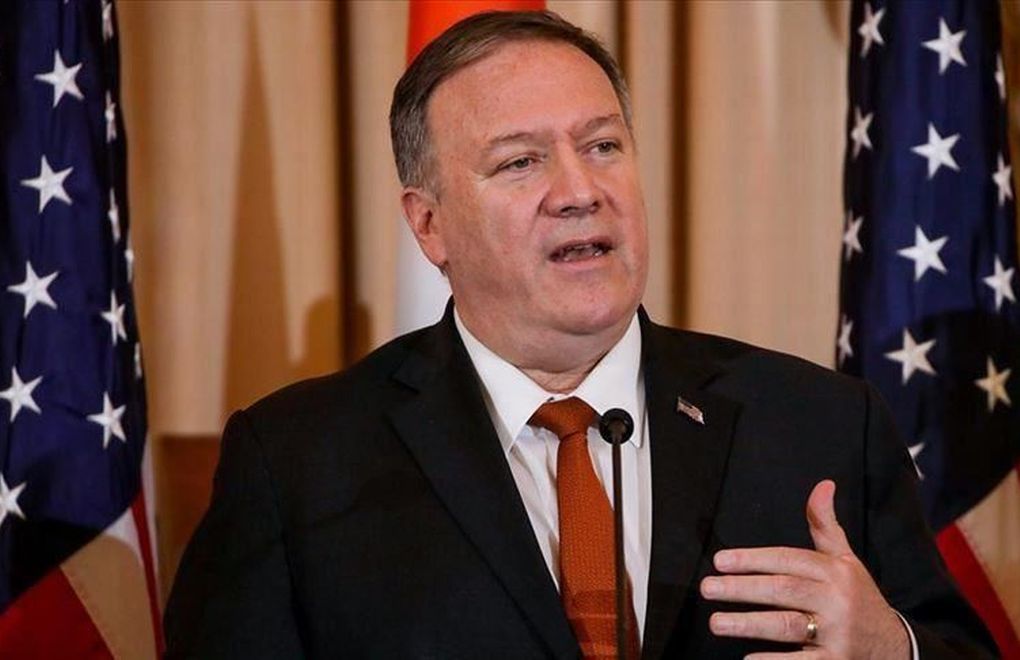

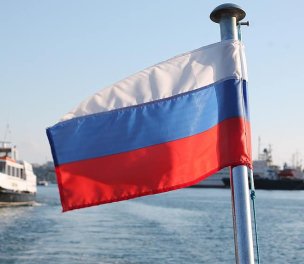
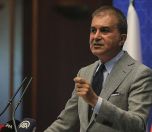
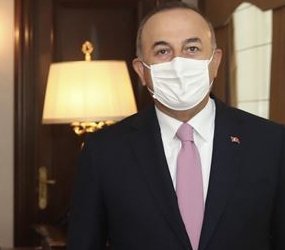
-132.jpg)
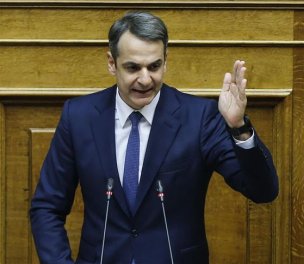
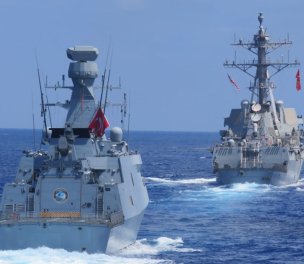
sa.jpg)
